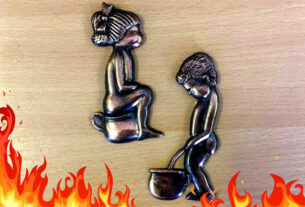According to European folklore, February 2 is the day when we can predict the coming of spring with the help of bears.
With a long tradition in zoos, this day tends to make us pay closer attention to the behavior of our bears. If they come out of their caves in a clear weather and see their shadow, they will get scared and hurry back to in to resume hibernation – meaning winter will last a few more weeks. If, however, the weather is gloomy and they do not cast a shadow, they stay out, marking the end of winter.
One of the most frequent bear-related questions we get from visitors is whether bears in human care hibernate. The answer is a resounding no as they are simply not forced to do so. Zoo bears are regularly fed plenty of appropriate fed, so they do not have to worry about managing their own reserves. Also, hibernation in bears does not involve such a deep sleep as we would think. While body temperature in hedgehogs, pelicans, or bats drops significantly during hibernation, bears only slow down their heartbeat and breathing, in addition to a stop in feeding.
This kind of weather prediction is traditionally done with European brown bears, but we assure you that our Asian black bear named Dönci is an equally proficient meteorologist. Judging from his above-average activity today, it is time to dust off our spring clothes.
Debrecen Zoo and Musement Park

















